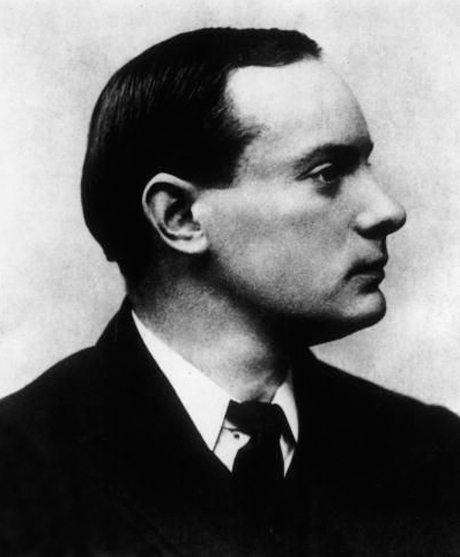
James Connelly was born in June 1868 in Edinburgh Scotland where he came from a very poor upbringing. This is lead him to develop a hatred for poverty, one that he would carry with him for the rest of his life (Foy and Barton, 2011). Connelly was largely self taught in his early life where he found himself immersed in the writings of Karl Marx which caused him to develop socialist values. In 1896, Connelly received an offer to work as a paid organizer for the Dublin Socialist Society where he would spend his time living in the slums of Dublin among the poverty ridden people. He spent seven years working as an activist and a journalist further honing his socialist and nationalist ideals, but in this time his efforts to improve Dublin’s tenement conditions had made little to no impact. In a speech about tenement life Connelly says “The trenches healthier than the slums of Dublin. Ay, my masters, but death in a slum may be the noblest of all deaths if it is the death of a man who preferred to die rather than dirty his soul by accepting the gold of England” (Connolly, 1916). He would rather the poor of Dublin die in their terrible conditions than give into imperialist Britain. Connelly then moved to America briefly but returned to Dublin in 1910 assuming the role as a union organizer and one of the founders of the Irish Labor party. He was devoted to helping the working class by striving for them to receive better pays and fewer hours in a work week. He felt that the only way that the working class could achieve this was to rise up and loosen the grip of oppression held on them by capitalism he also believed in workers uniting under socialism (Treacy, 2013). The only way to overthrow the capitalist class was to arm workers to fight and overthrow it “destroy forces that produce poverty”. Connelly was also the leader of the Irish Citizen Army and was beginning to become increasingly impatient with the lack of progress in Dublin and was already planning his own insurrection with the citizen army with the goal of overthrowing British rule in Ireland even if it meant dying. In order to prevent a premature rebellion, Patrick Pearse talked to James Connolly and explained the Irish Republican Brother Hood’s plans for a rebellion and offered an alliance between the IRB and Connelly and the Citizen Army, Connolly accepted.
Patrick Pearse was born in Dublin in 1879 to an English father who migrated to Ireland. Unlike Connolly, Pearse had a very romanticized view of Ireland in which he wanted to preserve the Irish language and loved Irish history. In college Pearse had studied law but soon after he gave up on it to focus on the Gaelic League and was an editor for their journal. The decline in the Irish language was something that worried Pearse, he believed that the English education system was taking over and was destroying the Irish identity and way of life. Pearse set up his own school called St. Edna’s where he taught the Irish language and aspired to educated children in farming and business, he did not see urban life as an ideal Ireland he wanted the country to return to its previous roots. Due to the frustration of financial struggles faced at his school, Pearse began to dive deeper into Irish revolutionary writings particularly Wolf Tone whom he felt he could relate to. Around this time Pearse would go on to join the IRB where his speaking skills and passion for Ireland made him well respected. His speeches like the Graveside Oration for O’Donovan Rossa helped fuel the need for revolution within the IRB. In his

speech Pearse said ” They think that they have purchased half of us and intimidated the other half. They think that they have foreseen everything, think that they have provided against everything; but the fools, the fools, the fools! — they have left us our Fenian dead, and while Ireland holds these graves, Ireland unfree shall never be at peace”(Pearse, 1915). Not long after planning for the Rising occurred and lead to the teaming up of the IRB and James Connolly and the citizens army. Pearse and Connolly would go on to be leading forces in the rebellion where Pearse would read out their proclamation on the steps of the GPO after they seized it. In an excerpt from the Proclamation, Pearse goes on to say ” In every generation the Irish people have asserted their right to national freedom and sovereignty; six times during the past three hundred years they have asserted it in arms. Standing on that fundamental right and again asserting it in arms in the face of the world, we hereby proclaim the Irish Republic as a Sovereign Independent State. And we pledge our lives and the lives of our comrades-in-arms to the cause of its freedom, of its welfare, and of its exaltation among the nations” (Pearse, 1916). This statement talks about the long history of violence and martyrdom over Irish freedom and how it will continue, Ireland is also declared Independent of Britain in the document but this is something that will not occur for a few more years. Although the rebellion was deemed unsuccessful it memory and those who sacrificed themselves for it served as a cry of freedom for Ireland that would be vital in the country achieving independence in 1922.
